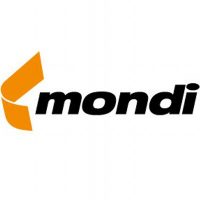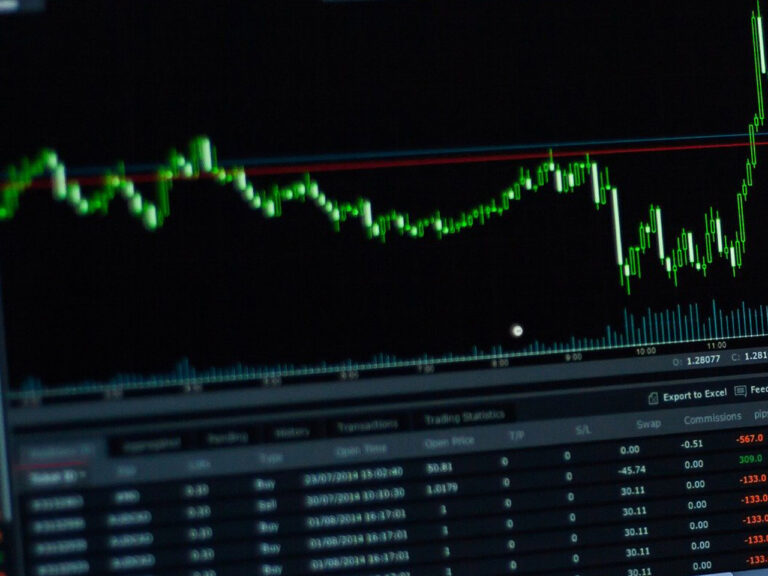Mondi PLC (LON:MNDI), today announced full year results for the year ended 31 December 2018
Highlights
Strong financial performance on all key metrics
Revenue of €7,481 million, up 5%
Underlying EBITDA of €1,764 million, up 19%
Underlying operating profit of €1,318 million, up 28%
Basic underlying earnings of 189.1 euro cents per share, up 27%
Profit before tax of €1,105 million, up 25%
Recommended full year ordinary dividend of 76.0 euro cents per share, up 23%
Robust operational performance and strong cost control across the Group
Capital investment projects on track and delivering growth
Successful start-up of the modernisation of Steti (Czech Republic)
Focused capital investment project pipeline in progress, securing future growth
Good progress integrating acquisitions, total spend €424 million
Well positioned with sustainable packaging solutions portfolio
Announced intention to simplify corporate structure
Delivering against our 2020 Growing Responsibly commitments
Financial Summary
| Restated3 | Restated3 | |||||
| € million, except for percentages and per share measures | Year ended 31 December 2018 | Year ended 31 December 2017 | Change % | Six months ended 31 December 2018 | Six months ended 31 December 2017 | Change % |
| Group revenue | 7,481 | 7,096 | 5 | 3,754 | 3,514 | 7 |
| Underlying EBITDA1 | 1,764 | 1,482 | 19 | 912 | 752 | 21 |
| Underlying operating profit1 | 1,318 | 1,029 | 28 | 688 | 526 | 31 |
| Operating profit | 1,192 | 968 | 23 | 662 | 460 | 44 |
| Profit before tax | 1,105 | 884 | 25 | 615 | 423 | 45 |
| Per share measures | ||||||
| Basic underlying earnings per share1 (euro cents) | 189.1 | 148.9 | 27 | |||
| Basic earnings per share (euro cents) | 170.1 | 137.9 | 23 | |||
| Total ordinary dividend per share (euro cents) | 76.0 | 62.0 | 23 | |||
| Special dividend per share (euro cents) | — | 100.0 | ||||
| Cash generated from operations | 1,654 | 1,363 | 21 | |||
| Net debt | 2,220 | 1,532 | ||||
| Underlying EBITDA margin1 | 23.6% | 20.9% | ||||
| Return on capital employed (ROCE)2 | 23.6% | 19.3% |
Notes:
1 The Group presents underlying EBITDA, underlying operating profit and related per share information as non-IFRS measures which exclude special items in order to provide a more effective comparison of the underlying financial performance of the Group and its operating segments between financial reporting periods. This is consistent with the way financial performance is measured by management and reported to the Boards and the DLC executive committee. A reconciliation of Group underlying EBITDA and underlying operating profit to profit before tax is provided in the condensed combined and consolidated income statement. Special items are disclosed in note 4 of the condensed combined and consolidated financial statements and defined at the end of this announcement, together with a definition of key Alternative Performance Measures
2 ROCE is underlying operating profit expressed as a percentage of the average capital employed for the year, adjusted for spend on major capital expenditure projects which are not yet in operation. ROCE provides a measure of the efficient and effective use of capital in the business and is monitored by the Boards and the DLC executive committee
3 The audited annual financial statements for the year ended 31 December 2017 were restated due to the adoption of IFRS 16, ‘Leases’, which has been disclosed in notes 2a and 2b of the condensed combined and consolidated financial statements
Peter Oswald, Mondi Group Chief Executive Officer, said:
“Mondi delivered a strong performance in 2018, with underlying EBITDA up 19% to €1,764 million. We benefited from good demand across our fibre packaging businesses, higher average selling prices and the contribution from our recent acquisitions. I am particularly pleased to report on a robust operating performance, delivering productivity gains and strong cost containment, mitigating the inflationary pressures on our cost base.
We continue to make good progress in delivering value accretive growth and enhancing the ongoing cost competitiveness of our operations through our capital expenditure programme. During the fourth quarter of 2018, we successfully started up the €335 million modernisation of our kraft paper facility in Steti and we received the final permits to proceed with our investment in a 300,000 tonne kraft top white machine at our Ruzomberok mill (Slovakia), while work to upgrade the pulp mill at the same site is progressing well. Expansionary capital expenditure projects at a number of our packaging operations and the integration of acquisitions completed in the year will further enhance our production capabilities and product offering to customers.
In November 2018, we announced a proposal to simplify our dual listed structure into a single holding company structure under Mondi plc, which we believe will streamline cash and dividend flows, enhance our strategic flexibility, increase transparency and remove the complexity associated with the current structure.
Looking ahead, while there are macro-economic uncertainties, we remain confident in the structural growth drivers in the packaging sectors in which we operate. Pricing is mixed going into 2019, with recent price reductions in containerboard grades and market pulp and stronger pricing in our kraft paper markets. During 2019, we are planning longer maintenance and project related shuts, while looking forward to the incremental contribution from recently completed major capital projects and acquisitions.
Mondi is uniquely positioned to develop sustainable packaging solutions. With our robust business model, strong balance sheet, focus on leveraging key industry trends of sustainability, e-commerce and enhancing brand value, and culture of continuously driving performance, we continue to look to the future with confidence.”
Group performance review
2018 was a successful year for the Group. We delivered strong results, building on our track record of value accretive growth, which is testament to our consistent and focused strategy, robust business model, integrated approach to sustainability and firm commitment to drive performance.
Group revenue of €7,481 million was up 5% on the prior year. Excluding the impact of acquisitions and divestitures, revenue was up 4%, mainly due to higher average selling prices achieved across all our businesses. We saw volume growth in Fibre Packaging, driven by the benefit of previously completed capital investment projects, operational improvements and strong organic volume growth in Industrial Bags. Consumer Packaging volumes were impacted by our targeted approach to exit lower margin business and a decline in volumes in personal care components. While core product volumes in the Uncoated Fine Paper business were up year-on-year, market pulp and newsprint volumes were negatively impacted, respectively, by the extended shut at our Richards Bay mill (South Africa) and the strategic decision taken in the prior year to exit the newsprint market in South Africa.
Underlying EBITDA of €1,764 million was up 19% on the prior year, with strong contributions from Fibre Packaging and Uncoated Fine Paper. A combination of higher selling prices, strong operational performance, the contribution from acquisitions and the benefits of our ongoing cost reduction initiatives more than offset higher variable and fixed costs and negative currency effects.
Our passion for performance is central to the way we run our business – from our focus on commercial excellence and lean processes, to rigorous quality management and operational excellence programmes that enhance productivity and efficiency. We invest in our existing operations and, where appropriate, in acquisitions. We aim to acquire businesses that produce high-quality products with sustainable competitive advantage and the potential to achieve world-class operating standards. This enables us to generate synergies through integration, enhance our product and service offering and/or extend our geographic reach to better serve our customers.
We are pleased that the need for sustainable packaging has moved sharply into focus. We are uniquely positioned, as a manufacturer of paper, but also flexible plastic packaging, to create the best solutions for forward-thinking, consumer brands in collaboration with sustainable materials suppliers and recyclers. Our paper and flexible plastic packaging solutions regularly win awards, but commercial demand for some of our most innovative sustainable packaging was limited before 2018. The public focus on the impact of plastic waste is changing that. This momentum gives us an important opportunity to lead our industry with innovative, sustainable paper and plastic packaging solutions. By taking a holistic view, we can develop packaging that considers the needs of customers, their products and the planet.
In June 2018, we completed the acquisition of Powerflute (Finland), an integrated pulp and paper mill with a production capacity of 285,000 tonnes per annum of high-performance semi-chemical fluting, for a total consideration of €365 million on a debt and cash-free basis. The integration is progressing well and further broadens our containerboard product range and geographic reach. We also completed two industrial bag plant acquisitions in Egypt bolstering our presence in the fast growing Middle East industrial bag market, enabling us to better serve our customers in the region. In June 2018, we completed the sale of a flat sack kraft paper mill in Pine Bluff, Arkansas (US), with 130,000 tonnes of annual production capacity.
The impact of maintenance shuts on underlying EBITDA in 2018 was around €110 million (2017: €95 million). Based on prevailing market prices, we estimate that the impact of planned maintenance shuts on underlying EBITDA in 2019 will be around €150 million, of which the first half year effect is estimated at around €90 million (2018: €55 million). This includes an extended maintenance shut planned at our large Syktyvkar mill (Russia) in the second quarter and a project related shut at our Ruzomberok mill in the second half.
Input costs were generally higher than the prior year period, mitigated by our ongoing cost reduction initiatives. Wood costs were generally higher in local currency terms. Strong wood cost inflation was seen in northern and certain central European markets, while wood costs were lower in Poland and the Czech Republic driven by favourable regional wood supply dynamics. Energy and chemical costs were up year-on-year mainly due to higher crude oil and gas prices. Caused mainly by Chinese import policies, average benchmark paper for recycling costs were down 33% on the prior year, declining sharply during the first quarter and stabilising thereafter. Polyethylene prices were slightly lower year-on-year.
Despite general labour cost inflation, most evident in central and eastern Europe, Russia and South Africa, and higher maintenance costs at a number of our key pulp and paper mills, we were able to limit the overall increase in fixed costs due to the success of our ongoing cost containment and productivity improvement initiatives.
Currency movements had a net negative impact on underlying EBITDA versus the comparable prior year period. The negative impact of a weaker Russian rouble on translation of our domestically focused Uncoated Fine Paper business and a weaker Turkish lira more than offset the benefits to our export orientated businesses of a weaker South African rand and a strong US dollar relative to the euro, seen in the second half of the year.
Depreciation and amortisation charges were marginally lower during the period, as currency effects and disposals more than offset the effects of acquisitions and the Group’s capital investment programme.
Underlying operating profit of €1,318 million was up 28% on the prior year. After taking into consideration the impact of special items of €126 million (2017: €61 million), operating profit of €1,192 million was up 23% (2017: €968 million).
Cash generated from operations of €1,654 million (2017: €1,363 million), reflects the continued strong cash generating ability of the Group. Following the payment of a special dividend (€484 million) in May and the completion of acquisitions totalling €424 million during the year, net debt was up to €2,220 million (2017: €1,532 million) or 1.3 times (2017: 1.0 times) net debt to 12-month trailing underlying EBITDA.
Basic underlying earnings of 189.1 euro cents per share were up 27% compared to 2017. After taking the effect of special items into account, basic earnings of 170.1 euro cents per share were up 23% compared to 2017.
Our Boards have recommended payment of a final ordinary dividend of 54.55 euro cents per share, bringing the total ordinary dividend for the year to 76.0 euro cents per share, an increase of 23% on 2017.






































